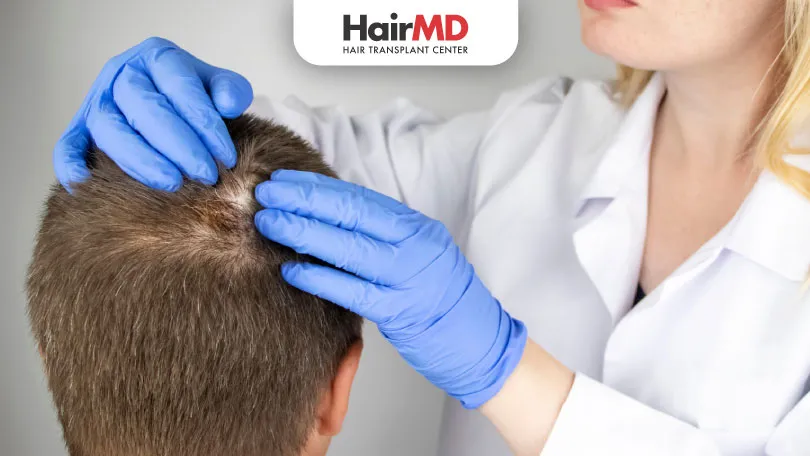Hair loss is seen in various stages of life in males as well as females. Nowadays, most of the people face hair loss either in their 20’s or 40’s, which has become very common.
If you are also losing too many hairs in your 40’s, then surely you need to know about Male hair loss in 40’s. Don’t worry, don’t be panic. Let us also see what are the treatments for male hair loss.

Table Of Content
- What causes male hair loss?
- Treatment for Male Hair Loss in 40’s
- Conclusion
What causes male hair loss?
Treatment for Male Hair Loss in 40’s
Conclusion
Popular Q&As
Discover affordable hair transplant solutions in India, including factors affecting pricing and available treatments. Losing too much hair can be concerning. find out about the common causes of hair loss and learn how to prevent further thinning at HairMD Pune Losing too much hair can be concerning. find out about the common causes of hair loss and learn how to prevent further thinning at HairMD Pune
What is the cost for hair transplant in India?
Why Is My Hair Falling Out So Much?
Best Hair Loss Shampoo for Men: Expert Tips | HairMD
We Got Your Back! Ask Us Anything On Your Mind!
Reach out to us on


